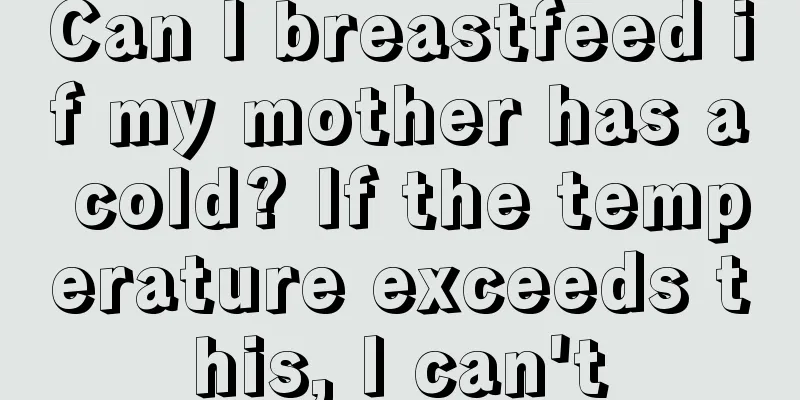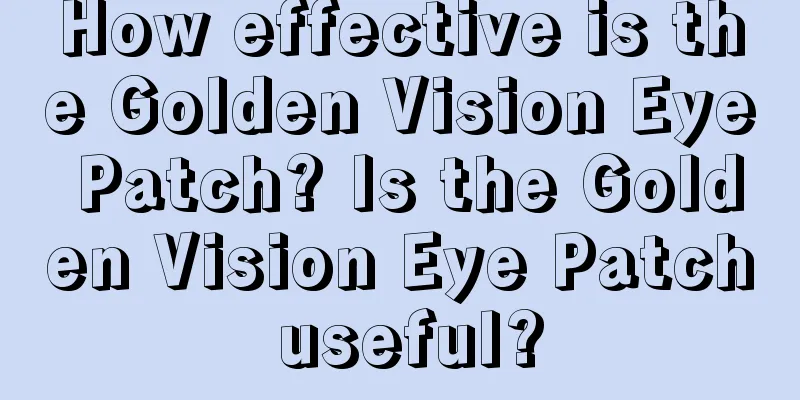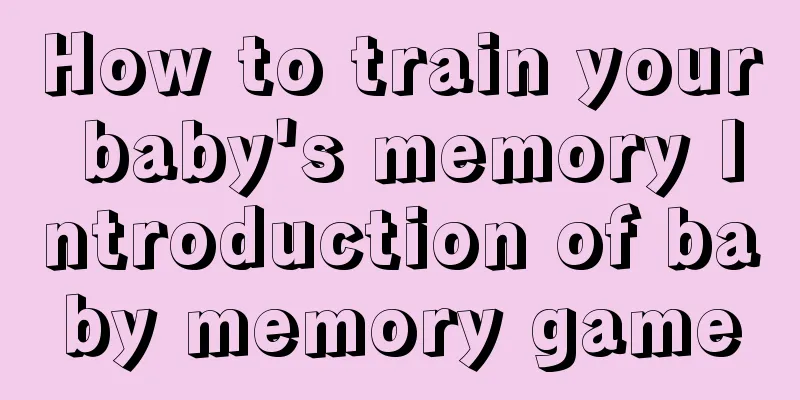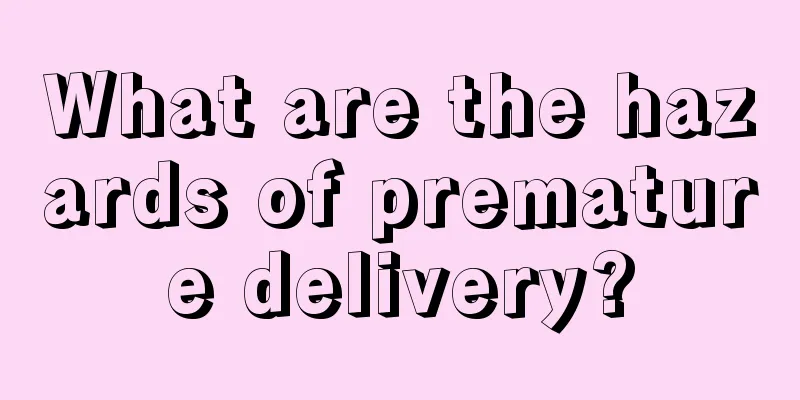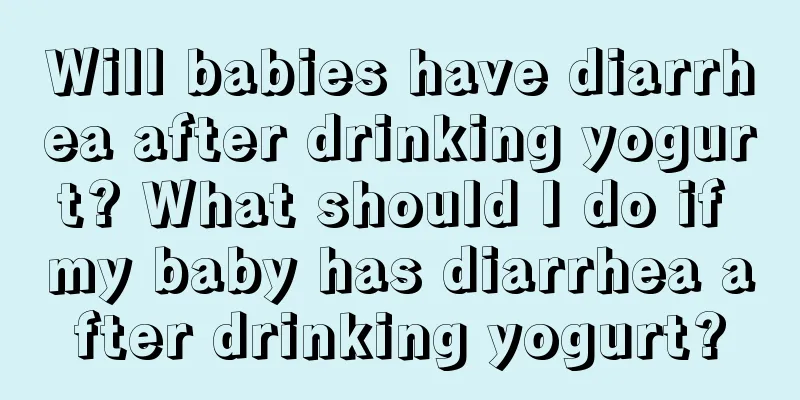Symptoms of ADHD in children. What should I do if my child is hyperactive?
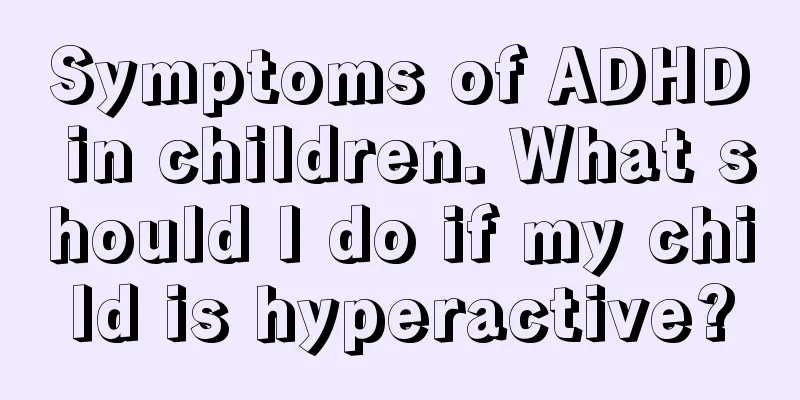
|
It is a sign of health for a child to be lively and active, but being too active will make adults worry whether the child has ADHD. Below, the editor of No. 5 website will introduce to you the symptoms of ADHD in children. What should you do if your child is hyperactive? Symptoms of ADHD in childrenAre children with ADHD deliberately misbehaving? A large number of related studies have shown that ADHD patients have structural abnormalities in certain brain areas such as the frontal lobe, corpus callosum, cerebellum, etc., thinning of the cerebral cortex, disordered neurotransmitter metabolism, and delayed development of the cerebral cortex. Abnormal brain structure leads to difficulty in concentration, hyperactivity/impulsivity, and emotional disorders in children with ADHD. Therefore, these symptoms of children with ADHD are caused by the disease. Parents should not think that their baby is a naughty and disobedient child and adopt a beating and scolding education method all day long. Over time, children will develop a rebellious mentality and become more and more disobedient. What are the symptoms of ADHD? Children aged 3-5 years old have a high activity rate, and it is very natural for them to have a short attention span. This can be gradually controlled as children grow older. Normal children may also be hyperactive, but they are generally active only in appropriate occasions. Their hyperactive behavior is purposeful, and social functions such as learning and partnerships are not affected. In addition, children who are nervous, anxious, depressed, anemic, have increased blood lead levels, or have apnea during sleep at night may also be hyperactive and inattentive. Once these causes are removed, the symptoms will disappear. There is another type of children who, in addition to hyperactivity symptoms, will also be accompanied by late walking and talking, difficulty in interacting with other children, repetitive and stereotyped movements. This requires vigilance for mental retardation, autism, Asperger's and other diseases. Therefore, parents of hyperactive children should not accuse their babies of ADHD casually, but must go to the hospital for a thorough examination. What are the types of ADHD? ADHD is divided into three types: inattention-deficit type, hyperactivity-impulsivity type, and mixed type. Younger children with ADHD are mainly hyperactive, unable to sit still, and have many small movements; while older children are mainly inattentive and easily distracted. Therefore, the absence of hyperactivity symptoms does not necessarily mean that you do not have ADHD. Can ADHD be cured when one grows up? Relevant data show that the prognosis of ADHD is not optimistic. A very small number of children will have their symptoms disappear with age and have a good prognosis, but up to 80% of children with ADHD will have their symptoms persist into adulthood. Moreover, as they age, children with ADHD often have more and more social dysfunctions such as inferiority, destructive behavior, poor learning ability, poor social adaptability, criminal behavior, conduct disorder, provocative behavior, lack of enthusiasm, confrontational behavior, multiple learning difficulties, etc., which have a serious impact on the entire family. What to do if your child is hyperactive(1) Eat less food containing tyrosine, such as noodles, cakes, etc. Eat less food containing methyl salicylic acid, such as tomatoes, apples, oranges, etc. Do not add spicy condiments, such as chili peppers and peppers, to your diet, and do not eat foods such as shellfish, tomatoes, citrus fruits, etc. (2) Eat more foods rich in zinc. Zinc is a trace element in the human body and is closely related to human growth and development. Zinc deficiency often causes children to have poor appetite, slow development, and reduced intelligence. Studies have found that most students with excellent academic performance have higher levels of zinc in their hair. Therefore, eating foods rich in zinc, such as eggs, liver, beans, peanuts, etc., is helpful in improving intelligence. It is recommended to use Xinxibao tablets to improve children's ADHD. (3) Eat more iron-rich foods. Iron is the raw material for blood production. Iron deficiency can cause brain dysfunction, affect children's mood, and aggravate ADHD symptoms. Therefore, children with ADHD should eat more iron-rich foods, such as liver, poultry blood, lean meat, etc. (4) Eat less lead-containing foods. Because lead can cause changes in children's visual movement, memory perception, image thinking, behavior, etc., and lead to hyperactivity, children with ADHD should eat less lead-containing foods such as preserved eggs and shellfish. (5) Children with ADHD should eat less aluminum-containing foods. Aluminum is a metal that threatens human health. Excessive consumption of aluminum can lead to intellectual impairment, memory loss, loss of appetite, and indigestion. Children with ADHD should eat less fried dough sticks, because alum needs to be added to the flour to make fried dough sticks, and the chemical composition of alum is potassium aluminum sulfate. Therefore, eating fried dough sticks is not good for children's intellectual development. Encourage children more, cultivate their self-esteem and self-confidence, and let them have an interest in learning and life. This is very beneficial for children with mild ADHD and can help them return to normal as soon as possible. Parents change their education methods. They should not be too strict and harsh on their children, nor should they be too indulgent. These will cause or aggravate the symptoms of ADHD in children. "Reducing intervention" and "creating a free atmosphere" are very effective in preventing and treating ADHD. Parents should urge their babies to eat and sleep on time and have enough sleep time. Children's interests should not be accommodated and they should not be allowed to watch computers and TV until late at night, which will affect their sleep. Avoid or do not let children eat high-calorie and greasy foods, such as fried chicken legs, French fries, grilled lamb skewers, spicy strips, etc. Eating too much of these foods will induce children's ADHD. Eat less lead-containing foods. Because lead can change children's visual movement, memory perception, image thinking, behavior, etc., and cause hyperactivity, children with ADHD should eat less lead-containing preserved eggs, shellfish and other foods. Teachers in school should actively cooperate with parents and try to arrange such children to sit in the front row during class. Teachers should talk to them more to reduce their study pressure. If children make progress in concentrating, they should be praised and encouraged in time to facilitate reinforcement. How to treat ADHD1. Psychotherapy There are two main methods: behavioral therapy and cognitive behavioral therapy. The patient has poor peer relationships, aggressive language and behavior toward others, and poor self-control. Behavioral therapy uses the principle of operant conditioning to promptly give positive or negative reinforcement to the patient's behavior, so that the patient can learn appropriate social skills and replace inappropriate behavior patterns with new and effective behaviors. Cognitive behavioral therapy mainly solves the patient's impulsiveness problem, allowing the patient to learn how to solve problems, identify whether their behavior is appropriate, and choose appropriate behavior. 2. Medication Medications can improve attention deficits, reduce activity levels, improve academic performance to some extent, and improve relationships with family members in the short term. (1) The first-line treatment drugs for central nervous system stimulants are currently mainly methylphenidate and its controlled-release tablets in China. Methylphenidate, also known as Ritalin, can help improve attention at low doses, while higher doses can improve hyperactivity and impulsivity and reduce behavioral problems. Central nervous system stimulants are limited to patients over 6 years old. Due to their central nervous system stimulant effects, they should not be used at night. Side effects of the drug include decreased appetite, insomnia, headache, irritability, and irritability. It is not yet certain whether they affect growth and development. Central nervous system stimulants may induce or aggravate patients' tic symptoms, and are not recommended for patients with comorbid tic disorders. The problem of substance abuse must also be considered when using central nervous system stimulants for a long time. (2) The representative drug of selective norepinephrine reuptake inhibitor, atomoxetine, has the same efficacy as methylphenidate, fewer adverse reactions, and good tolerability. It has been listed as the first-line treatment for ADHD. Features: once a day, the effect can last for 24 hours; long-term use, no addiction; the drug takes longer to take effect than central nervous system stimulants, and generally takes 1 to 2 weeks to show efficacy, so it is not suitable for ADHD patients who need acute treatment. The most common adverse reaction is gastrointestinal reaction, which needs to be taken after meals. 3. Behavior management and education Teachers and parents need to conduct effective behavior management and psychological education based on the characteristics of the patients, avoid discrimination, corporal punishment or other rough educational methods, and appropriately use praise and encouragement to improve the self-confidence and self-consciousness of patients. When the parents and school authorities of children with ADHD determine that the child's condition or behavior has affected the child's ability to participate in learning, the child can receive intervention treatment in school. The child's seat can be arranged near the teacher to reduce the child's distraction during class, and the course arrangement should take into account giving the patient sufficient time for activities. 4. Education and training for parents It is suitable for patients with conduct disorders or other psychological problems, whose parents do not agree to drug treatment or whose parenting methods are inappropriate. Education and training can be carried out in the form of a single family or group. The main contents are: providing parents with a good supportive environment, allowing them to learn the skills to solve family problems, learn to work with their children to formulate clear reward and punishment agreements, effectively avoid contradictions and conflicts with their children, master the correct use of positive reinforcement methods to encourage children's good behavior, and use punishment methods to eliminate children's bad behavior. ADHD Tips[Symptom description] Inattention, short attention span, hyperactivity, and impulsivity [Disease Diagnosis] Rely on history and examination to exclude neurologic and developmental disorders [Treatment Method] Develop a comprehensive treatment plan based on the patient and family characteristics [Disease cure] Early symptomatic treatment can effectively relieve symptoms [Cause of disease] The cause of this disease is unclear, and it is currently believed to be caused by multiple factors. [Epidemiology] The prevalence rate is 3% to 7%, with a male to female ratio of 4 to 9:1 |
<<: Is it normal for Anerle diapers to have a smell? Does Anerle diapers have fluff pulp?
>>: What should I do if my electric blanket gets damp? Who should not use electric blankets?
Recommend
Why do babies have bloating? How to solve baby bloating
Young children are very delicate, so parents need...
Why does milk suddenly decrease? Pay attention to these foods
The biggest concern for breastfeeding mothers is ...
Can I drink tea when I am pregnant? What kind of tea is good when I am pregnant?
Drinking tea is a habit for most Chinese people. ...
How to pinch the middle finger to tell the gender of the baby during pregnancy Which month in 2020 is more likely to give birth to girls
Many mothers are curious about the gender of thei...
Mom’s experience sharing: How to teach your baby to eat by himself?
When babies reach a certain stage, mothers can te...
What causes labor pain? How to take care of yourself after childbirth?
Many people may feel very painful when they hear ...
Who can't eat bacon? Who can't eat bacon?
Although bacon is delicious, it is not suitable f...
What is the most effective way to treat children with cold and stuffy nose? What medicine should children take for cold and stuffy nose?
Children usually have poor constitution and resis...
Do I need to wear underwear during confinement? Will my breasts sag if I don't wear underwear during confinement?
Do you need to wear underwear during confinement?...
What should babies eat to cure their cough and phlegm in summer? What should babies do if they have a cough and phlegm in summer?
What can babies eat to cure their cough and phleg...
What should I do if my child is picky about food and doesn't grow? What should I do if my child is particularly picky about food?
It is quite common for children to be picky eater...
Is it necessary to buy a nursing pillow? Is a nursing pillow useful?
Although the price of a nursing pillow is not aff...
How to control too much milk?
Every female friend's milk supply situation i...
Will a normal birth affect the quality of a couple's sex life?
Normal sex life can enhance the relationship betw...
What should you say to your baby during prenatal education? What should you pay attention to during prenatal education?
Prenatal education is very important for the baby...
